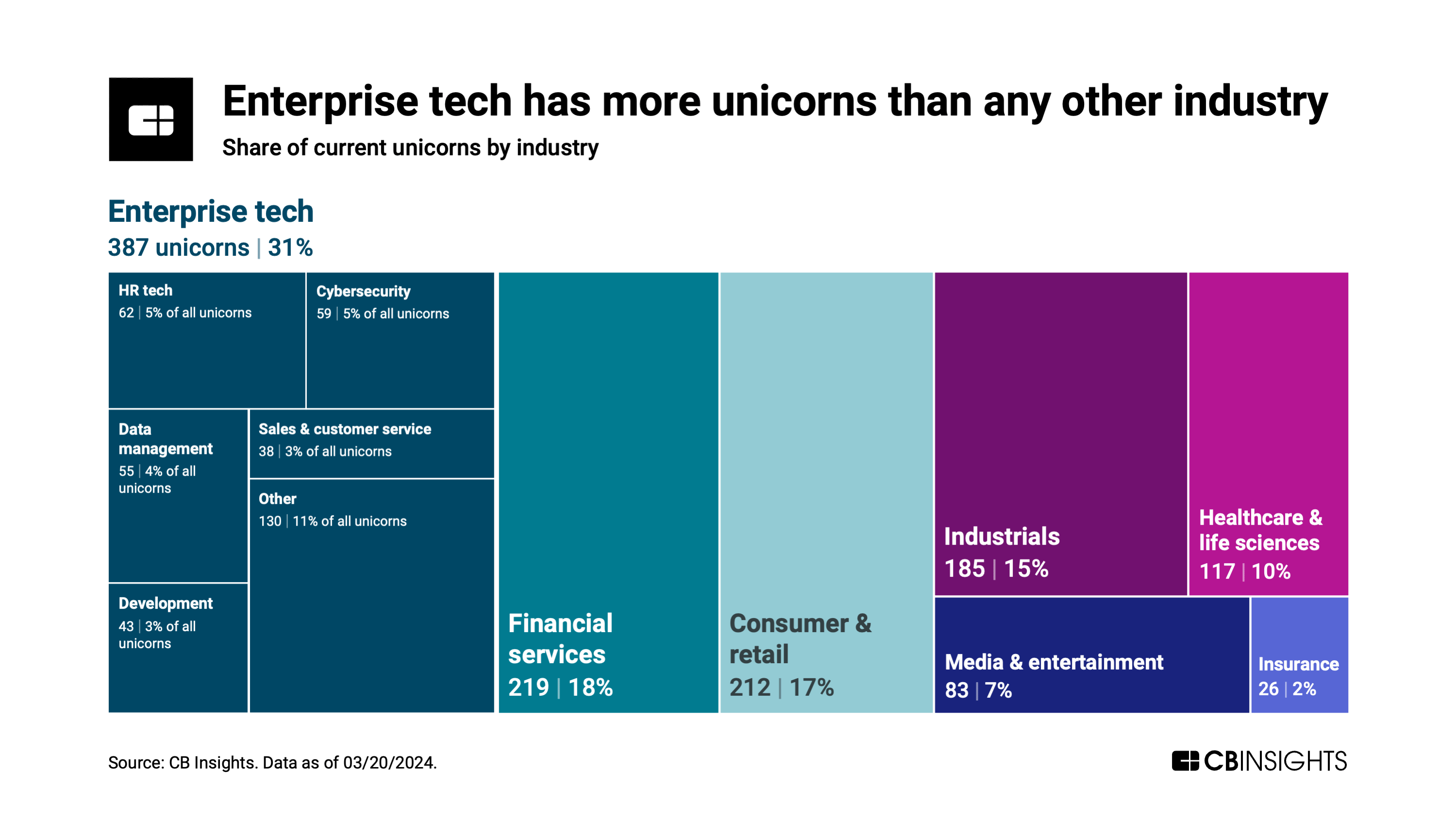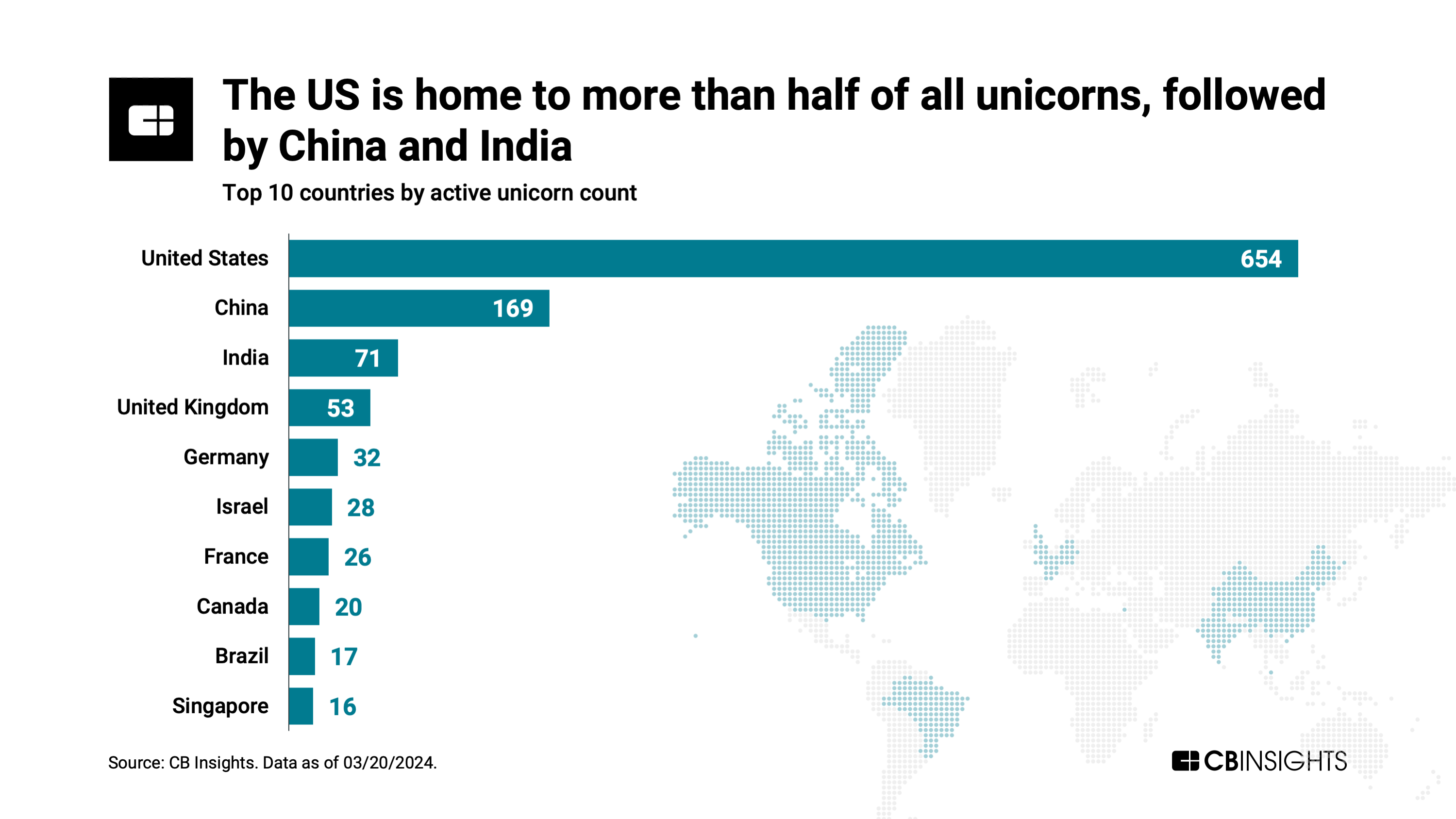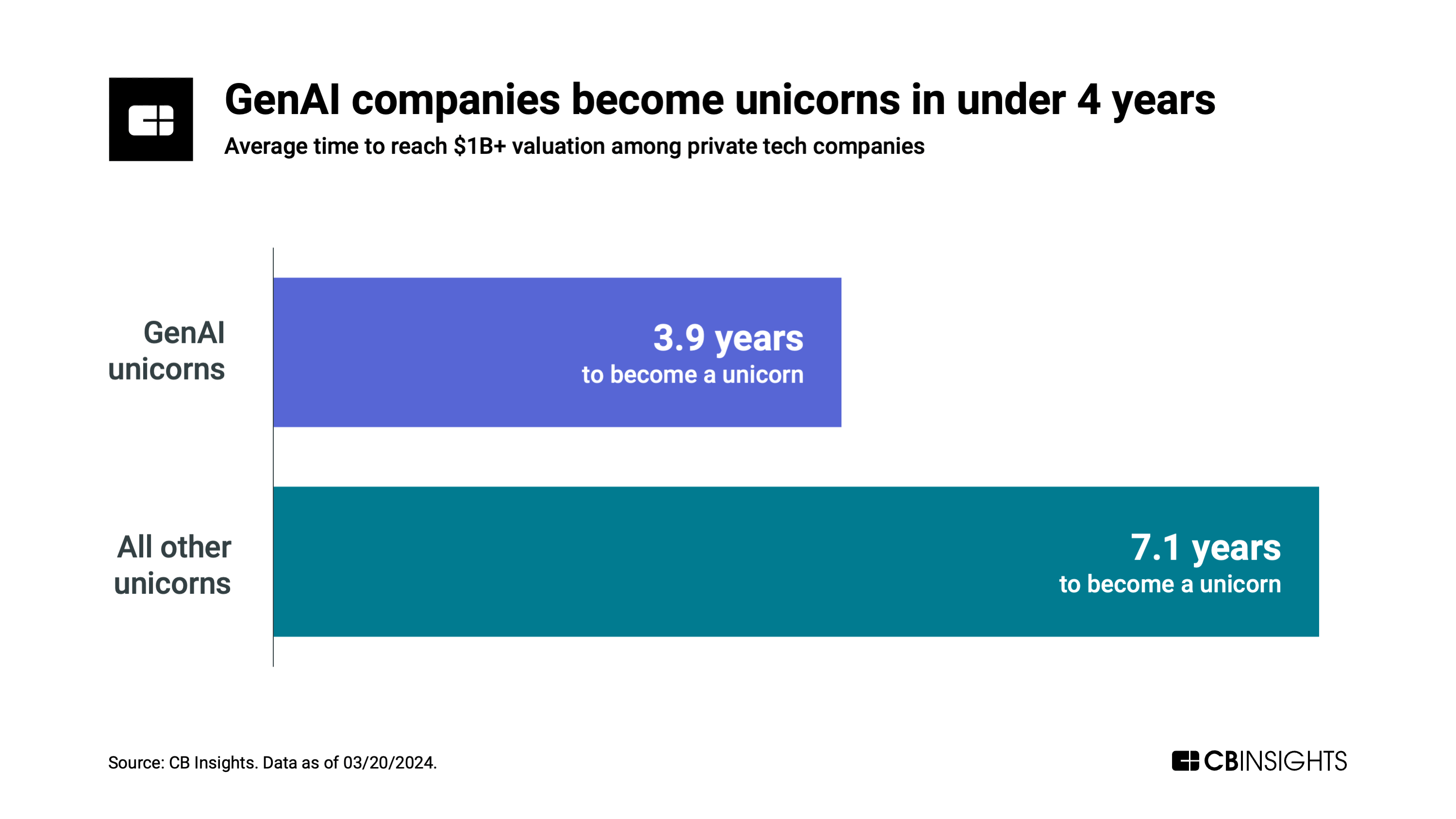We visualize every billion-dollar startup around the globe and profile the fastest-growing unicorn markets.
The venture market looks wildly different than it did in 2021, when VC FOMO drove startup valuations — and subsequently, the number of billion-dollar unicorns — through the roof. That year, a new unicorn was born every 16 hours.
The days of fairy-tale valuations are long gone. Last year saw just 71 new unicorns minted — one-eighth as many as in 2021.
But investors and startups have some reason for optimism. New unicorn births rebounded in Q4’23, jumping quarter-over-quarter from 14 to 23. And generative AI companies are showing they can attain unicorn status at a breakneck pace, as we explore below.
Read on to see every unicorn globally, as well as our breakdown of key industry and geography trends.
CB Insights customers can dive deeper into unicorn data using the Unicorns Expert Collection, as well as hear directly from unicorns’ customers here.
Market map
Collectively, the world’s unicorns are worth $3.8T — roughly comparable to the GDP of Germany.
The market map below shows all 1,229 unicorns, grouped by industry.
Categories are not mutually exclusive and companies are sorted by primary use case.
Unicorns by industry
Enterprise tech is the most highly represented industry, with 31% of all unicorns. The enterprise tech category includes tech companies that target general B2B use cases or sell into a wide range of industries.
Given the breadth of this group, we’ve broken it down further into segments like HR tech and cybersecurity, which each account for 5% of all unicorns.
The financial services industry takes the second spot with an 18% share, followed by consumer & retail with 17%.
The enterprise tech group has seen especially strong growth recently. Roughly half of the unicorns born in the last 6 months are in this category, propelled by generative AI newcomers like China’s 01.AI ($1B valuation), India’s Krutrim ($1B), and ElevenLabs ($1.1B) out of the US. All 3 were founded in the last 2 years.
Meanwhile, the unicorn count in most other industries has been stagnant or even declined. Healthcare & life sciences, for instance, has seen its total unicorn count shrink from 122 to 117 since our last update in October 2023, driven by a mix of startup exits, down rounds, and shutdowns in digital health.
Meanwhile, recent newcomers to the unicorn club include:
- Liquid Death ($1.4B valuation). The non-alcoholic beverage company, known for its heavy-metal branding, has nearly 8M followers on social platforms and doubled its retail sales YoY in 2023.
- Mews ($1.2B). Mews, which develops SaaS tools for the hospitality industry, is seeing demand grow as the tourism industry makes a post-Covid comeback.
- Figure ($2.7B). The venture arms of Amazon, Intel, Nvidia, Microsoft, OpenAI, and Samsung all backed Figure’s Series B round last month, as the tech incumbents have been racing to get involved in the humanoid robotics space.
Global distribution of unicorns
Globally, a total of 53 countries and regions are represented in the unicorn club.
The US is home to more than half (53%) of all unicorns. Within the US, two industries have a higher share relative to global averages: enterprise tech (39% of US unicorns) and healthcare & life sciences (13% of US unicorns).
The US is followed by China (14% of global unicorns). China’s unicorns are especially concentrated in the industrials and consumer & retail spaces, which represent 31% and 30% of the country’s unicorns, respectively.
Time to reach unicorn status
On average, it took just over 7 years for today’s unicorns to reach the billion-dollar mark from when they were founded. This is relatively stable across industries — ranging from 6.6 years for financial services to 7.7 years for healthcare — until you zoom in on generative AI startups.
There are 34 generative AI unicorns, and they’ve collectively averaged just 3.9 years to hit unicorn status — 45% less than all other unicorns.
In some cases, genAI startups are reaching that mark in under a year. For instance, Mistral AI, a Paris-based LLM developer, was founded in April 2023. Just 8 months later, in December 2023, it grabbed a $2B valuation as part of its Series A round.
CB Insights customers can explore all 34 generative AI unicorns with this CB Insights platform advanced search.
If you aren’t already a client, sign up for a free trial to learn more about our platform.



